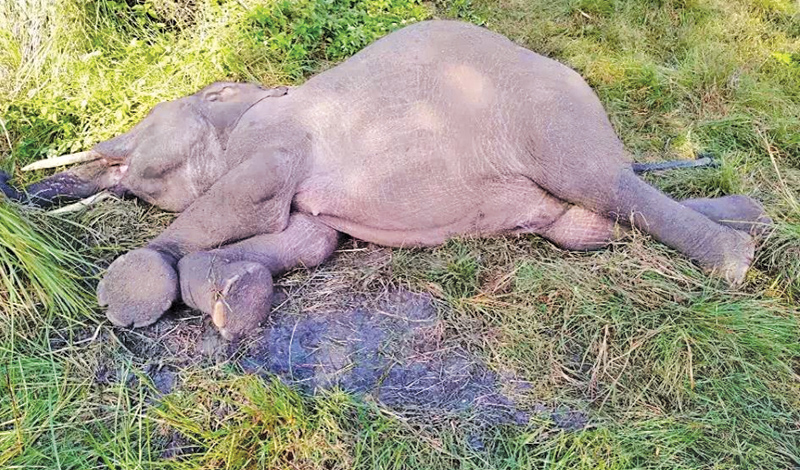A recent research paper has found the Pinnawala Elephant Orphanage to be among the lowest-rated elephant conservation establishments in Asia among visitors.
Sri Jayawardenapura University Researchers T. G. Supun Prakash and Priyan Perera, together with conservationists Chethika Perera and Prithiviraj Fernando who conducted the research, looked at the five ex-situ establishments of Elephant Nature Park in Thailand, Pinnawala Elephant Orphanage in Sri Lanka, Elephant Safari Park in Indonesia, Hutsadin Elephant Foundation in Thailand, and the National Elephant Conservation Centre in Malaysia for their research.
These places were chosen for having received the highest number of reviews on TripAdvisor from August 1, 2016 to January 31, 2017.
The research published in Gajah, the bi-annual journal of the International Union for Conservation of Nature/Species Survival Commission (IUCN/SSC) Asian Elephant Specialist Group (AsESG), observed 10 reasons for dissatisfaction among visitors to these places.
Among these criteria, Pinnawala received the highest number of negative reviews and the second highest number of reviews. The greatest concern among visitors at Pinnawala was the unethical treatment of elephants such as physical harassment, chaining and caging of elephants, elephant performances, and elephant rides. Further, strong objections were also levelled against misbehaviours of mahouts such as asking for bribes, not wearing uniforms, smoking tobacco close to the elephants, excessive use of mobile phones, compelling elephants to pose with tourists for photographs and to eat food given by tourists, and offering ivory products for sale during elephant rides.
“All five establishments used the words ‘conservation,’ ‘nature,’ and ‘orphanage’ in advertising. Therefore, it appears that they were aware of current perceptions and expectations of visitors and made use of it to promote the establishment. However, the high proportion of reviews pointing out the deficiency of these aspects suggests that these establishments are lacking in them. Therefore, managers should pay more attention to ensuring animal welfare, and the establishments should engage in applied conservation of elephants, in accordance with their stated objectives,” researchers said.
A clear expression of what facilities and types of activities are available at each establishment in information provided especially online, would decrease unrealistic expectations. Misbehaviour of mahouts and exploitation of visitors are problems whose correction is comparatively easy and less costly. Their prevalence suggests lack of vision and effectiveness of management, they added.
Pinnawala Elephant Orphanage Assistant Director Navodh Abeysinge, speaking to the Daily News however, said it was unfair to go by TripAdvisor ratings, as the research had not only taken ‘average’ ratings to be counted as a negative review, but also that its findings in from August, 2016 to January, 2017, was too outdated in a constantly changing visitor environment.
“The other places they compared with Pinnawala were elephant facilities mostly run for commercial gain. We cannot do that because we are an orphanage, so the comparison is not fair,” added Abeysinghe.
In addition, keeping with the Born Free, Kept Free concept, Pinnawala, which spreads over 26 acres, was looking to open up roaming space for elephants to 15 acres, from the current nine. With regard to complaints that the elephants were chained, the assistant director said they had kept a semi-wild herd with a few aggressive males. Thus, it was necessary to chain some for visitor, keeper and animal safety.
In terms of touting complaints from mahouts, he said that they had taken steps to significantly reduce such complaints and introduced more discipline among mahouts; “We cannot assure 100 percent that they all are perfect, but the complaints we receive has reduced considerably,” he said.
Abeysinghe added that their actions had led to better reviews on TripAdvisor over the last year.



Add new comment